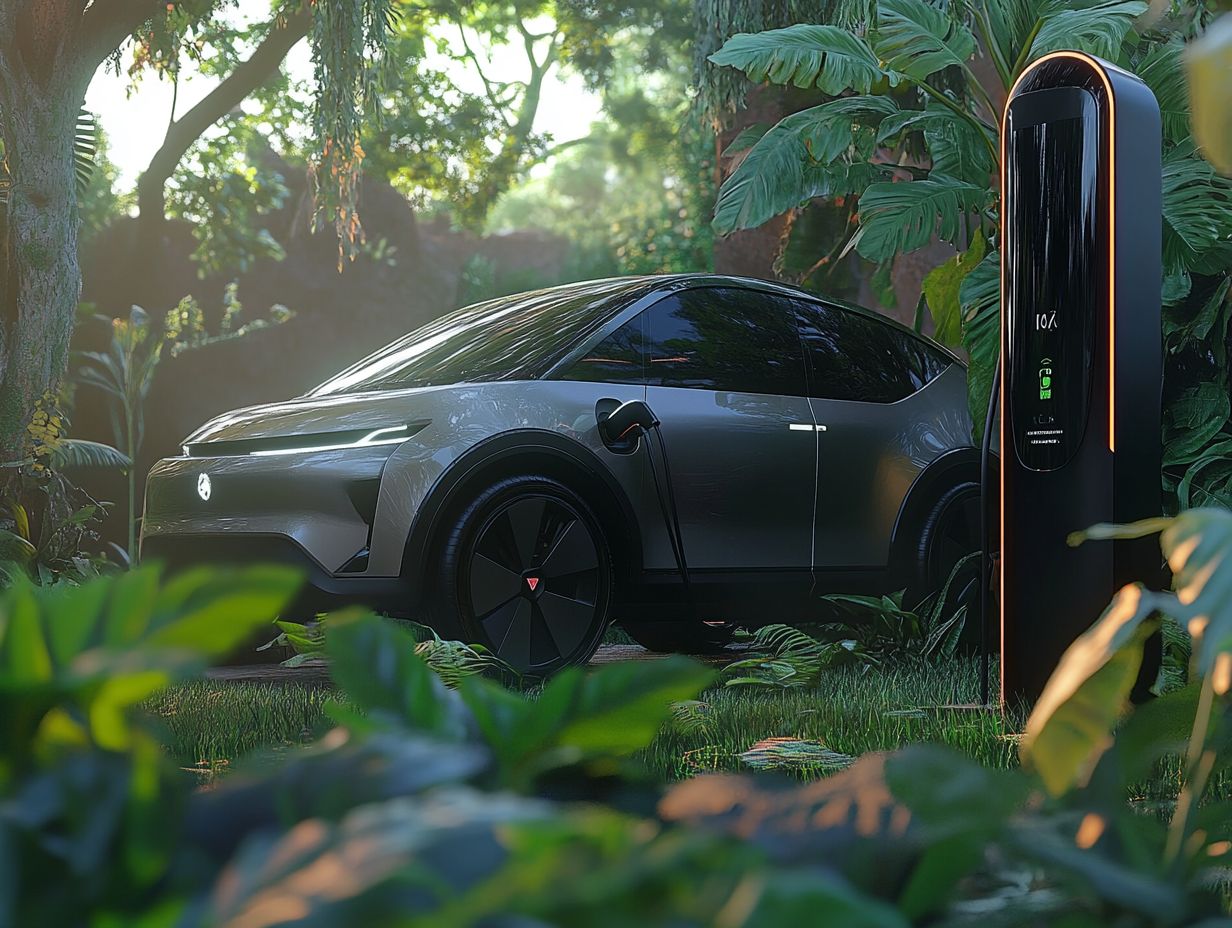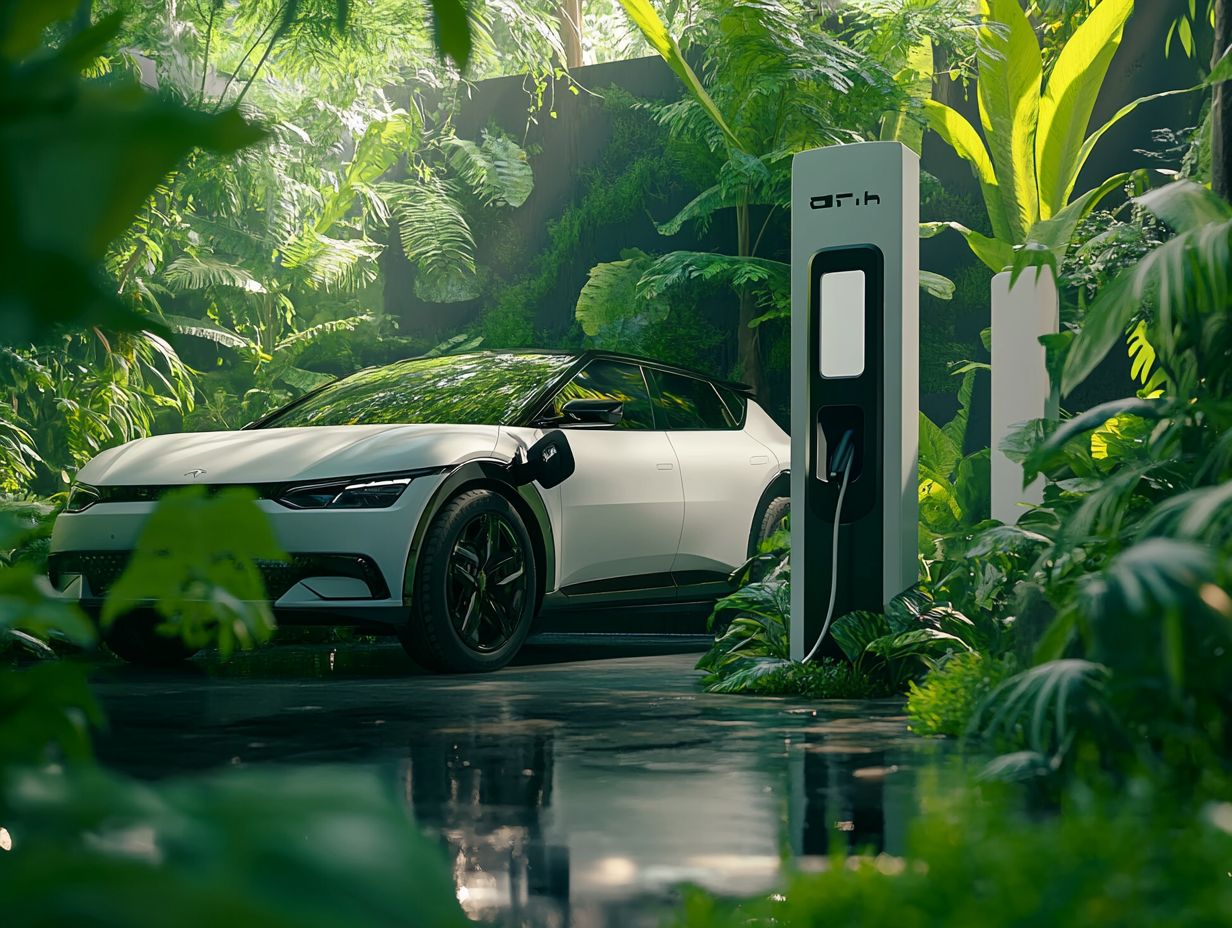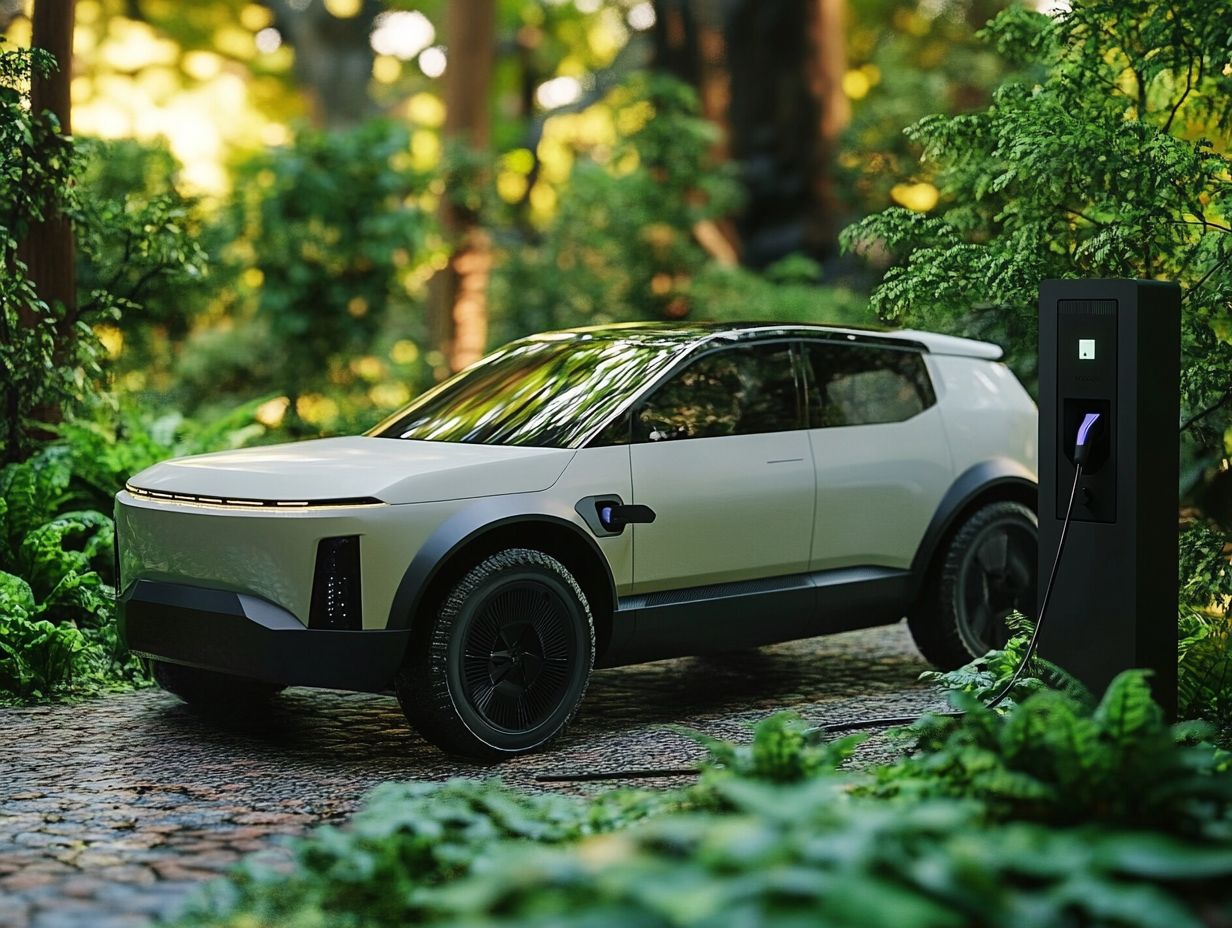What is Coverage for Electric Utility Vehicles?
As electric utility vehicles become increasingly popular for their efficiency and eco-friendliness, understanding the intricacies of coverage for these vehicles is essential.
This article delves into the definition and various types of electric utility vehicles, highlighting the significance of having adequate insurance coverage.
You will find a comprehensive discussion on different coverage options, including liability, physical damage, and uninsured/underinsured motorist coverage.
We will also explore the factors that influence coverage, providing guidance on how to secure the right insurance for your electric utility vehicle.
Discover how to protect your investment and enjoy peace of mind on the road!
Contents
- Key Takeaways:
- Understanding Electric Utility Vehicles
- Importance of Coverage for Electric Utility Vehicles
- Types of Coverage for Electric Utility Vehicles
- Factors Affecting Coverage for Electric Utility Vehicles
- How to Obtain Coverage for Electric Utility Vehicles
- Frequently Asked Questions
- What is coverage for electric utility vehicles?
- What types of electric utility vehicles are covered?
- Is this coverage necessary for my electric utility vehicle?
- What s included in your insurance?
- Are there restrictions or limitations to this coverage?
- How can I obtain coverage for my electric utility vehicle?
Key Takeaways:

- Electric utility vehicles come in various types, such as golf carts, forklifts, and street-legal vehicles, and are powered by electricity instead of fossil fuels.
- Coverage for electric utility vehicles is crucial in protecting against liabilities, damages, and accidents, as well as ensuring compliance with legal requirements.
- Factors like vehicle type, driver experience, and location can affect the type and cost of coverage for electric utility vehicles. It’s important to carefully consider and compare insurance options before obtaining coverage.
Understanding Electric Utility Vehicles
Electric utility vehicles (EUVs) are transforming the automotive landscape, offering you eco-friendly alternatives for your transportation needs. This category encompasses everything from electric cars and neighborhood electric vehicles to low-speed vehicles and golf carts.
As electric vehicles gain traction, it s essential to grasp the various types and functionalities available. With new technology, you will find that owning an electric vehicle offers benefits like lower repair costs and reduced emissions, making them a compelling choice in the expanding electric vehicle market.
Definition and Types of Electric Utility Vehicles
Electric utility vehicles represent an impressive array of options designed for eco-friendly, low-speed transportation. This category includes electric cars, neighborhood electric vehicles, low-speed vehicles, and golf carts.
Consider electric cars your go-to everyday transportation. They seamlessly integrate advanced technology for comfort and usability.
Neighborhood electric vehicles are perfect for short, community-oriented trips. They feature compact designs that zip through residential streets.
Low-speed vehicles strike an ideal balance between speed and eco-friendliness, often serving in industrial parks or university campuses where efficiency is key.
Golf carts provide a delightful way to navigate recreational areas. They are especially useful on golf courses and resorts.
Together, these vehicles play a pivotal role in fostering greener transportation solutions, enhancing mobility across various contexts while contributing to a more sustainable future.
Importance of Coverage for Electric Utility Vehicles
Getting the right insurance for your electric utility vehicle is crucial for your protection! Securing the appropriate insurance policy is essential for defending against the potential risks that come with ownership.
As the number of electric vehicle enthusiasts continues to grow, understanding the various insurance options and insurance limits becomes paramount.
Electric vehicle insurance presents numerous advantages, including specialized coverage that addresses the unique features and risks associated with these vehicles, such as battery replacement and repair costs. Many insurers offer discounts for eco-conscious vehicle owners, further enhancing the appeal of insuring your electric vehicle.
Explore your insurance options today to protect your electric utility vehicle!
Why Coverage is Necessary
Coverage for electric utility vehicles is essential to shield you from various financial risks and unexpected repair costs. As an electric vehicle owner, you encounter unique challenges, especially concerning battery maintenance and charging infrastructure—the places where you can charge your electric vehicle.
These challenges can increase risks, such as potential battery failures or charging station malfunctions. Issues like these are often overlooked by standard auto insurance policies. With the rise of electric vehicles on the roads, you’ll notice a growing array of regulations and requirements, making it crucial to seek specialized insurance solutions tailored to your specific needs.
This coverage not only protects you against accidents or damages but also offers peace of mind. It ensures both your vehicle and you are safeguarded against the unique uncertainties that accompany the shift to electric mobility.
Types of Coverage for Electric Utility Vehicles

When insuring electric utility vehicles, it’s essential to grasp the various types of coverage available to you. This includes:
- Liability coverage
- Coverage that protects against many types of damage
- Collision coverage
- Uninsured/underinsured motorist coverage
Understanding these options will enable you to make informed decisions tailored to your specific needs.
Liability Coverage
Liability coverage is a crucial element of any insurance policy. It safeguards you, the electric vehicle owner, from financial setbacks that may arise from accidents or injuries involving others.
This type of insurance ensures that if you’re deemed responsible for causing damage or harm, the policy will cover costs related to medical expenses, property repairs, and even potential legal fees. Most states legally require a minimum level of liability coverage, which varies based on local regulations.
For electric vehicle owners, it’s important to understand how this coverage works for you, including varying repair costs and specialized parts. This knowledge ensures you re well-protected should an accident occur.
Physical Damage Coverage
Physical damage coverage for electric utility vehicles includes both comprehensive and collision coverage, offering protection against damages from accidents and unforeseen events, including coverage for event vehicles.
Comprehensive coverage handles incidents typically beyond your control, such as theft, vandalism, or damage caused by natural disasters like storms or falling trees. In contrast, collision coverage specifically addresses situations where your vehicle is involved in an accident, whether with another vehicle or an object, providing essential financial protection for repair costs.
Understanding the nuances between these two types of coverage is crucial for utility companies like yours, as it helps minimize unexpected losses and maintain operational efficiency. Both forms of coverage are integral to a robust insurance strategy, ensuring that your electric utility vehicles remain well-protected against various potential risks, including coverage for special interest vehicles.
Uninsured/Underinsured Motorist Coverage
Uninsured and underinsured motorist coverage is essential for you as an electric vehicle owner. This coverage acts as your safeguard when you find yourself in an accident with a driver who doesn’t carry adequate insurance.
Think of it as a safety net, ensuring that you won t suffer financial strain due to someone else’s negligence. With the rapid rise in electric vehicle popularity, it’s not uncommon for other drivers to misunderstand or overlook the unique features and benefits of your vehicle.
If you encounter an underinsured driver, steep repair bills or medical expenses could arise that your own policy might not cover. As the electric vehicle market evolves, securing robust protection against the unpredictability of road interactions is becoming more crucial than ever for your peace of mind.
Factors Affecting Coverage for Electric Utility Vehicles
Several factors influence the coverage options and insurance rates for electric utility vehicles. These include the type of vehicle you own, your driving history, and understanding coverage for emergency response vehicles, alongside the availability of quotes from various insurance providers.
Vehicle Type and Usage

The type of vehicle you own whether it s a standard electric car, a low-speed vehicle, or a golf cart greatly impacts your insurance requirements and the coverage options available to you.
A standard electric car typically comes with more comprehensive insurance policies than low-speed vehicles, which are often viewed as less risky due to their limited use and speed. Advanced safety technology in electric cars can lead to lower premium rates, but you may need specialized coverage for unique components like batteries.
Golf carts, usually used in specific areas or communities, introduce unique challenges regarding liability and property damage, shaping their insurance landscape.
Knowing these details can help you choose the right insurance and save money!
Driver Experience and Record
Your driving experience and record significantly influence your insurance rates. Insurance companies assess the likelihood of claims based on your past driving behavior, looking at any accidents, traffic violations, or claims you ve made.
A clean driving record helps you secure lower premiums and unlock a wider range of coverage options. Insurers often reward responsible drivers with discounts and attractive perks.
In contrast, a history of infractions or significant incidents can raise your costs and limit your choices. This highlights the importance of cultivating responsible driving habits for long-term financial stability.
Location and Environment
The location and environment where you operate your electric utility vehicle can significantly influence your insurance rates, especially in areas with higher theft rates or more frequent accidents.
In dense urban areas, you ll notice elevated coverage costs due to the increased likelihood of collisions and property damage. Environmental factors, like extreme weather conditions, also play a crucial role. For instance, living in an area prone to flooding or hail can lead to higher premiums for potential repairs.
Insurers also consider local infrastructure for charging stations. Easier access to these stations can reduce the risks associated with running out of charge, potentially leading to lower rates.
Your location not only determines the overall safety profile of your vehicle but also shapes the economic factors involved in securing appropriate insurance for your electric vehicle.
How to Obtain Coverage for Electric Utility Vehicles
Acquiring coverage for electric utility vehicles requires understanding the diverse insurance providers available, their policies, and the coverage for personal vehicles designed specifically for electric vehicles.
Each provider offers unique features that cater to the distinct needs of this emerging market. It s essential to find the best fit for your specific circumstances.
Insurance Providers and Policies
Choosing the right insurance provider is crucial for you as an electric vehicle owner. You have options from trusted names like Farmers Insurance and Travelers to specialized insurers such as AARP.
As the electric vehicle market expands, understanding your specific coverage needs is essential. When selecting a provider, focus on companies that present competitive rates and offer comprehensive policies tailored for electric vehicle owners.
Consider factors such as roadside assistance for battery-related issues, coverage for charging station equipment, and discounts for eco-friendly practices. These can significantly enhance your insurance experience.
By exploring offerings from companies like Progressive or Geico, you can uncover unique benefits that align with your individual needs, ensuring you have peace of mind on the road.
Costs and Coverage Options

Protect your electric vehicle wisely! Understanding the costs of insurance is your first step towards making informed decisions about your protection and budget management.
As electric vehicles become more popular, it s crucial for prospective owners like you to grasp how insurance costs can change based on factors such as the vehicle’s make, model, and safety features.
Diving into various types of coverage like liability, collision, and comprehensive insurance is essential to ensure you have adequate financial protection against potential risks.
If you re looking to secure your electric vehicle, understanding the typical policy limits available in the market will be beneficial. By comparing insurance quotes effectively, you can uncover the best deals that cater to your specific needs while optimizing your overall insurance budget.
Frequently Asked Questions
What is coverage for electric utility vehicles?
Coverage for electric utility vehicles is the protection or insurance provided for these types of vehicles, including what is coverage for utility vehicles.
What types of electric utility vehicles are covered?
Electric utility vehicles like golf carts, electric scooters, and electric cargo carriers are typically covered under certain policies, including coverage for fleet vehicles.
Is this coverage necessary for my electric utility vehicle?
You definitely need coverage for your farm vehicles, including your electric utility vehicle. It provides essential financial protection in case of accidents, damage, or theft.
What s included in your insurance?
This insurance usually includes liability coverage, collision coverage, and coverage for off-road vehicles for electric utility vehicles.
Are there restrictions or limitations to this coverage?
Restrictions and limitations may vary by insurance provider. Common ones include age restrictions, usage restrictions, and geographic restrictions.
How can I obtain coverage for my electric utility vehicle?
You can get coverage by contacting your insurance provider and discussing your needs and options. They can provide a policy that fits your specific situation and budget.






